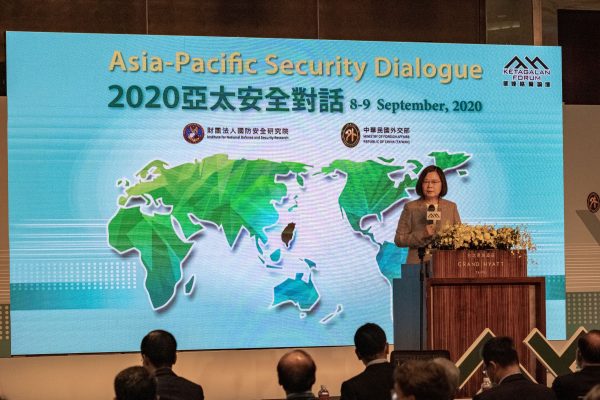Taiwan has actively supported countries and partners by donating surgical masks to countries in need under the motto ‘Taiwan can help’ and ‘Taiwan is helping’. Taipei offered millions of face masks and urgent medical aid to many, including NSP countries in need. And under the Ministry of Health and Welfare’s ‘One Country, One Centre program’, Taiwan is working with countries to promote industrial supply chain links and build disease prevention networks with like-minded partners in South and Southeast Asia.
The first major round of mask donations began in April 2020, with 11 million given to the United States and 11 European countries. The second round targeted Latin America and Southeast Asia as urgent demand for surgical face masks shifted. The shipment included India and six ASEAN countries — Singapore, Malaysia, the Philippines, Vietnam, Myanmar and Indonesia. As the third wave hit in May, 1.8 million masks were directed towards Taiwan’s NSP partners, mostly Southeast Asian countries.
Uncertain relations with China for many poses a challenge to Taiwan’s relations with Southeast Asia and beyond. In the post-pandemic era, Taiwan should continue to promote the success of its ‘Taiwan model’ as an illustration of ‘the fundamental role of respect for democratic values and individual freedom in harnessing technology, especially during a public health crisis’.
Taiwan can continue to support countries hit hardest by COVID-19 — like the Philippines and India — through sharing its expertise in coordinating responses across government departments. Taiwan can also elevate its exchange of modern prevention measures, contact tracing and big data analysis to monitor the treatment process. The Taiwanese government has a role cut out for it in engaging with officials and experts from these countries to promote its pandemic approach through dialogue on issues like ‘border controls, government policies to the public, and ways that medical institutions can keep a pandemic under control’.
Hsin-Huang Michael Hsiao suggests that the success of the Taiwan model lies in Taiwan’s medical and health insurance systems. Taiwan should stand firm on promoting the ‘NSP 2.0’ by exporting its model of pandemic prevention.
Cooperative projects for personnel training, academic exchanges and technical discussions are vital in promoting this model of governance. Fostering cooperation with New Zealand and Australia would also allow Taiwan to closer incorporate itself into the club of democratic countries in the Asia Pacific. Engagement with partner countries further strengthens the government’s deep-seated commitment to ‘achieving multifaceted cooperation and establishing mutual prosperity’ with NSP countries.
Southeast Asian countries are stepping up investments in healthcare in response to COVID-19. Fostering links between Taiwan and NSP countries here — through soft power, supply chains, regional markets and people-to-people connections — will gain renewed impetus. Taiwan should leverage its profile by promoting its medical industry in Southeast Asia and providing healthcare-related assistance to NSP countries.
Jeremy Huai-Che Chiang stresses the vital connection between the NSP and collaborative pharmaceutical efforts with Southeast Asian countries, foreseeing that ‘successful flagship projects such as medical supply chain cooperation will be strengthened, while critical ones such as educational exchange will obviously continue’. The NSP’s medical and industrial arms are now well-positioned to work in conjunction with regional countries, both during and after the pandemic.
The NSP will continue to serve as the lynchpin of Taiwan’s foreign policy during Tsai’s presidency. Taiwan navigating the pandemic by fostering deeper relationships in this region through an innovative policy approach, firmly attached to the NSP, can only yield good outcomes.
Huynh Tam Sang is a lecturer in the Faculty of International Relations and a research fellow in the Center for International Studies at the University of Social Sciences and Humanities, Vietnam National University, Ho Chi Minh City (VNUHCM).
This article is part of an EAF special feature series on the novel coronavirus crisis and its impact.

